From impregnating cows to separating families, the global dairy industry is built on cruelty. These five photos are pulling back the curtain…
As consumers dig deeper into their favorite food products, the dairy industry is under increased scrutiny. Concerns about animals have many people asking: What really happens on dairy farms?
Animal Equality’s global investigations have pulled back the curtain on dairy production. In 2019, investigators found frozen, newborn calves discarded in piles on a U.S. farm. For some, their hooves had separated from their legs.
This farm was linked to Babybel, a household brand name. The discovery sparked an even bigger question: What else could the industry be hiding?
The truth is, even when farms follow the law, suffering is built into the system. Here’s why:
1. Cows and their calves are separated at birth
Just like humans, a cow only produces milk once she’s given birth. To keep the milk flowing, farmers artificially inseminate her about once per year.
A strong bond forms between the mother and her baby immediately after birth. Within a day or two, the mother cow will be separated from her calf. She will cry for her missing baby for days.
In many cases, a mother cow will run after her calf as he’s dragged away. Once separated, this calf will be fed milk replacers while the dairy industry takes his mother’s milk for a profit.
In 2023, Animal Equality partnered with American actress Richa Moorjani to release an investigation of the global dairy industry.
In India, investigators found workers stuffing dead calves’ bodies with hay and placing them next to their mothers. This was an attempt to stimulate milk production, which slows or stops once mothers are separated from their calves.
2. Cows are forcefully impregnated
Once separated from her mother, a female calf will be trapped in the same cycle of repeated insemination. Each time she gives birth, she will be separated from her baby. Just as her mother once cried out for her, she will mourn each calf she loses.
After separation, the mother cow will be hooked up to a milking machine several times per day. Many cows suffer from injuries and infections from these unnatural milking methods.
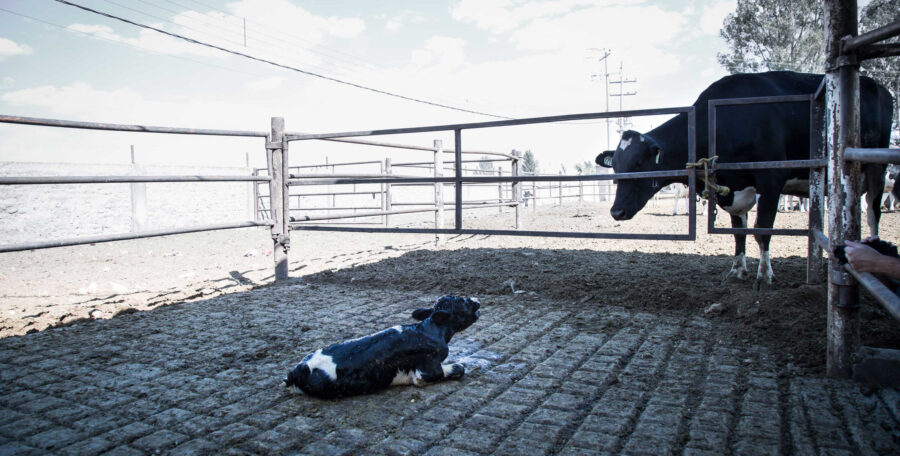
Animal Equality’s investigators have documented this endless cycle, exposing the dairy industry’s cruelty for the world to see.
By supporting Animal Equality’s investigations, corporate outreach, and legislative campaigns, you could break this cycle and bring an end to dairy farm suffering.
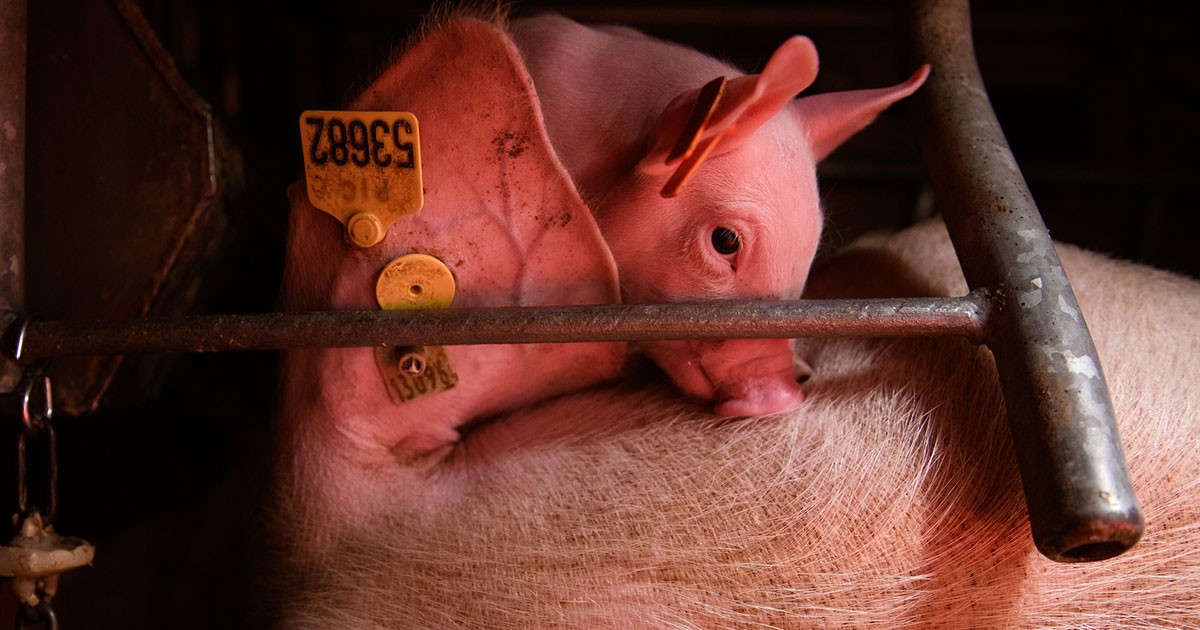
BECOME AN ANIMAL PROTECTOR
Help fund Animal Equality’s work to expose and end animal cruelty. Protect cows, pigs, chickens, and other animals today!
3. Male calves are killed for veal
A male calf is considered useless to the dairy industry because he cannot produce milk. If he isn’t raised and sold for beef, this baby will likely be sold to the veal industry.
There, he’ll be confined inside a cramped crate. Farmers will purposefully limit his movement to keep his meat tender, feeding him a diet low in iron to keep his flesh white. After a life of suffering, weakness, and solitude, he will be slaughtered.
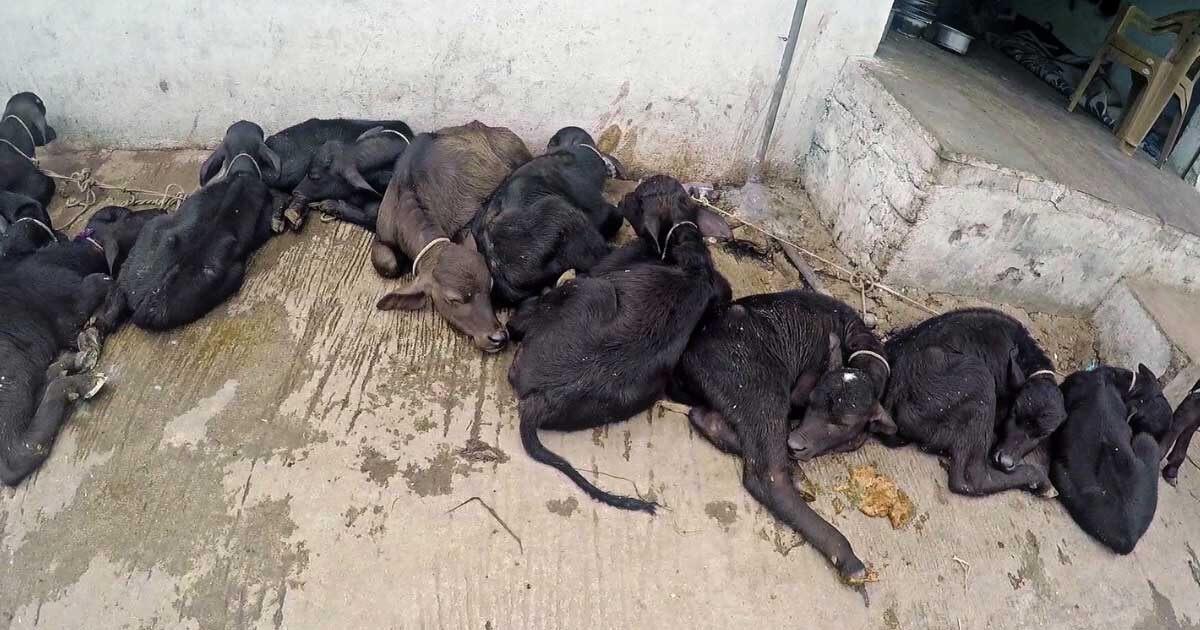
4. Cows are mutilated without anesthesia
Cows who aren’t bred to be hornless are typically “dehorned.” Often, workers cut the horns—which are full of sensitive nerve endings and blood—out of the animals’ heads. Others burn off the cows’ delicate horn tissue.
Cows are also “branded” with searing hot irons, and their tails are painfully removed (or “docked”). They endure all of this without anesthesia.
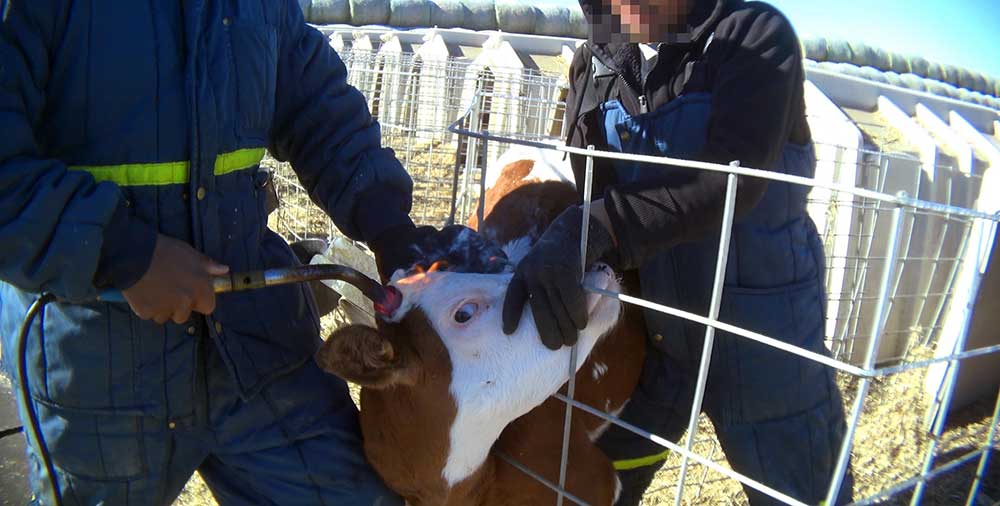
5. Cows from dairy farms are killed for meat
A cow in the dairy industry suffers for her entire life. Eventually, her body will give out from the stress of constant milking. The dairy industry might even use heavy machinery to lift her exhausted body from the ground.
Once considered “spent” at about five years old, a cow will face the same fate as animals in the meat industry. She will be packed into a truck and shipped off to slaughter so her meat can be sold at the grocery store.
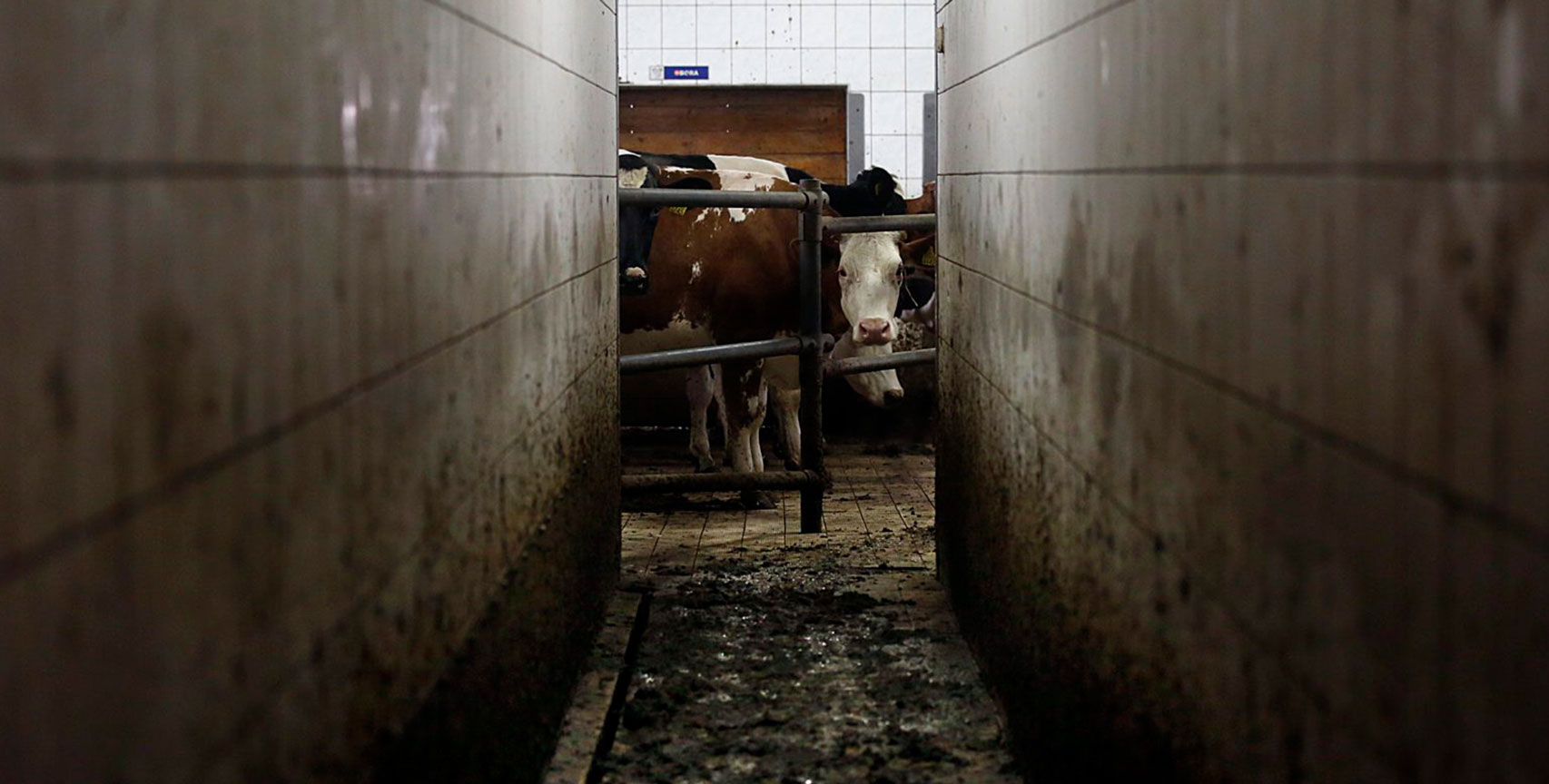
How you can help cows used for dairy
The good news is that sparing cows from cruelty is simpler than ever. From creamy oat milk to cashew yogurt, dairy-free alternatives are stocking most grocery store shelves.
At Love Veg, we’re opening up a whole new world of delicious, compassionate options. As you create your grocery shopping list or navigate restaurant menus, we’re here to help.
Millions of people have already replaced dairy, meat, and eggs with cruelty-free favorites. Are you ready to join them today?
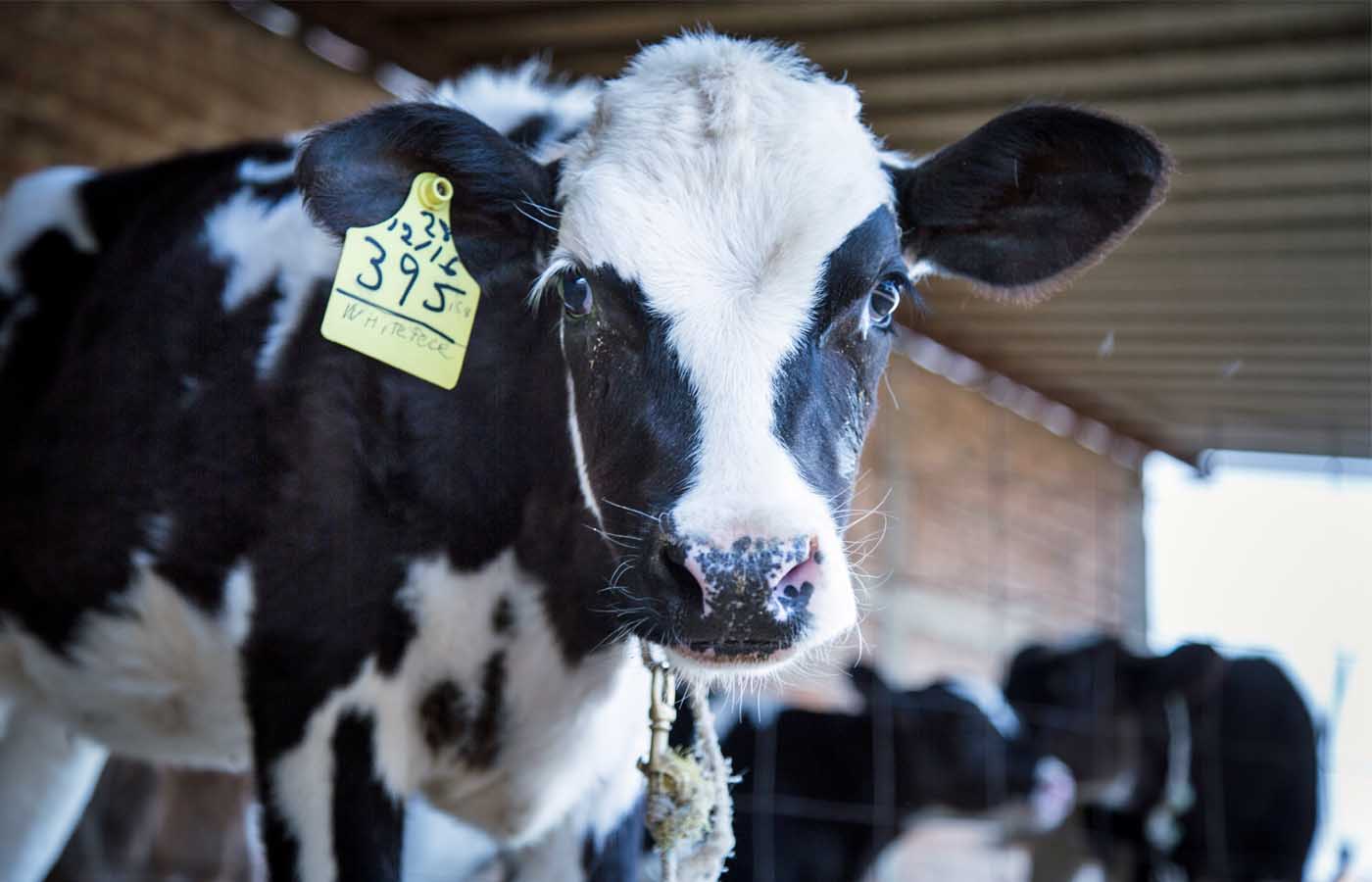
DEFEND MOTHERHOOD
A cow’s maternal instincts foster a gentle bond with her vulnerable calf.
Preserve this tender relationship by choosing plant‑based alternatives to dairy products.
